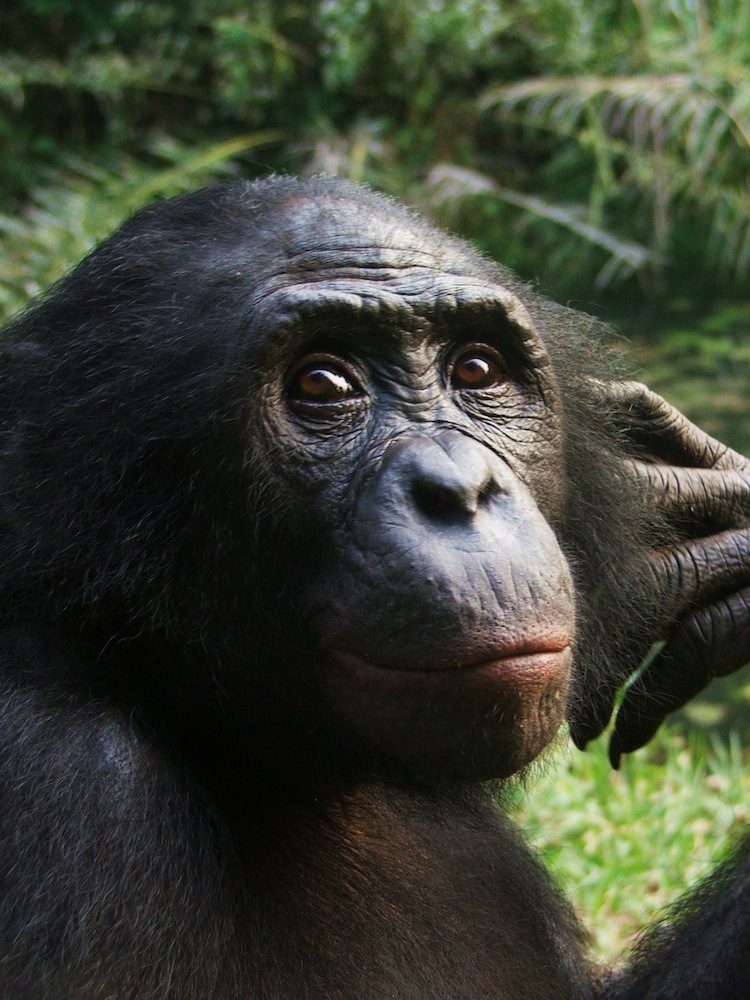Bonobos Face Shrinking Habitat in Africa

Bonobos, among humans' closest living relatives, are losing ground to people in their natural habitat, a new analysis suggests.
The endangered apes, also called pygmy chimpanzees, are only found in the lowland forests of the Democratic Republic of the Congo. Researchers found that it is getting harder for bonobos to avoid areas with high human activity; nest counts and remote sensing imagery show that just over a quarter of the apes' range remains suitable.
"Bonobos that live in closer proximity to human activity and to points of human access are more vulnerable to poaching, one of their main threats," study researcher Janet Nackoney, of University of Maryland, said in a statement. "Our results point to the need for more places where bonobos can be safe from hunters, which is an enormous challenge in the DRC."
Bonobos have a reputation as peaceful chimpanzees. Research has suggested they use sex rather than violence to diffuse tension, they're generous with their food, and they are rarely aggressive. For all their fascinating behaviors, bonobos in the wild have been scarcely studied, in part because of conflicts and instability in the DRC. [7 Iconic Animals Humans Are Driving to Extinction]
Looking at factors like forest density, climate and the presence of roads and farms, Nackoney and colleagues mapped out the environmental factors contributing to the bonobos' distribution. They found that only 28 percent of the bonobo's range is still suitable for the primates, and distance from agricultural areas was the most influential factor. Additionally, the team found that just 27.5 percent of that suitable habitat lies inside protected forests.
Ashley Vosper, with the Wildlife Conservation Society, said bonobos are "probably the least understood great ape in Africa." With a better grasp on the conditions bonobos need to thrive and the threats they face in the wild, conservationists say they could improve management strategies.
"For bonobos to survive over the next 100 years or longer, it is extremely important that we understand the extent of their range, their distribution, and drivers of that distribution so that conservation actions can be targeted in the most effective way and achieve the desired results," Vosper said in a statement.
Get the world’s most fascinating discoveries delivered straight to your inbox.
The study was detailed in the December edition of Biodiversity and Conservation.
Follow Megan Gannon on Twitter and Google+. Follow us @livescience, Facebook & Google+. Original article on LiveScience.

 Live Science Plus
Live Science Plus





